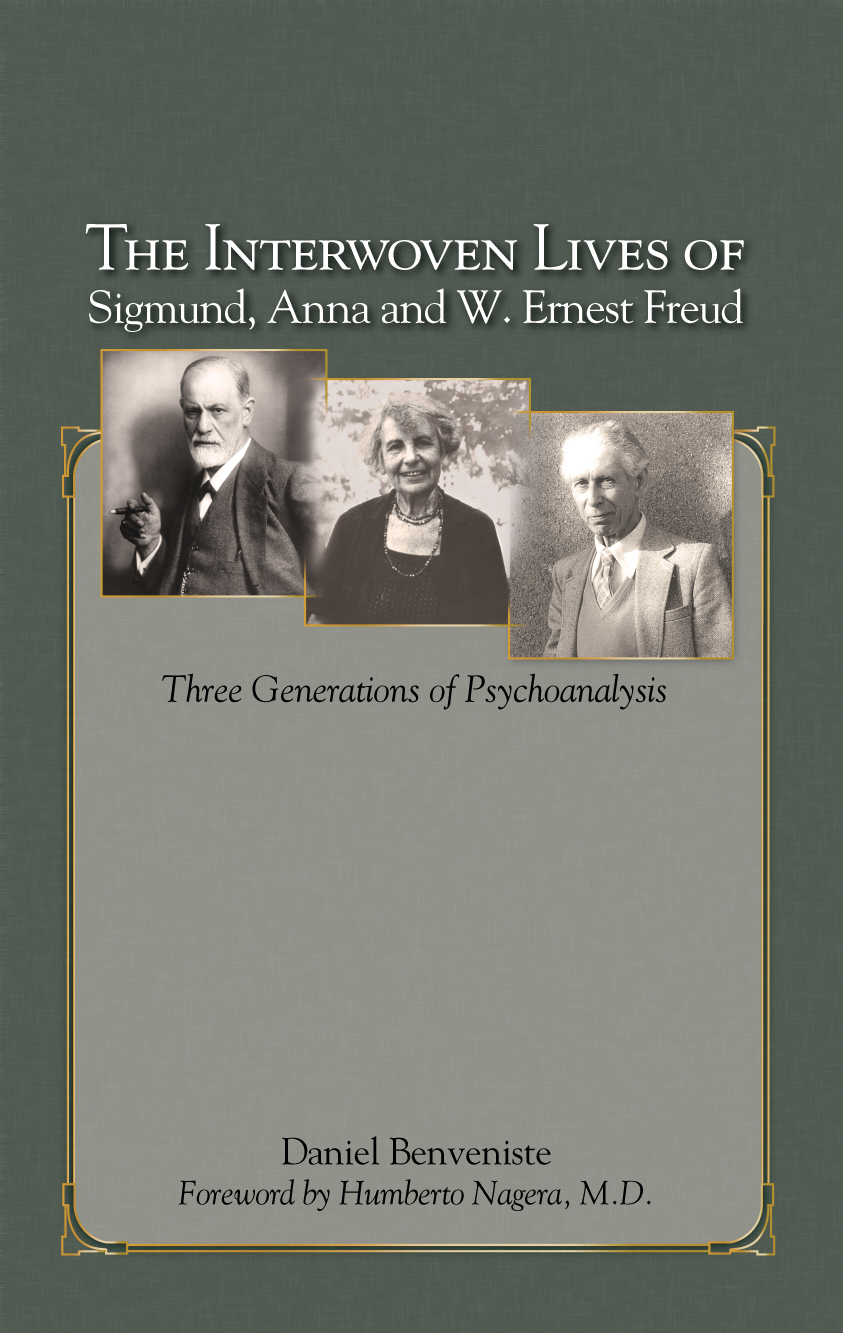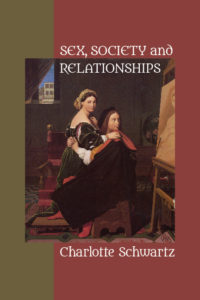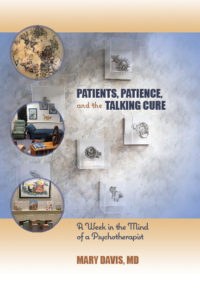The Interwoven Lives of Sigmund, Anna and W. Ernest Freud by Daniel Benveniste
$44.20
Click Here to Purchase: The ebook of this book on Amazon Kindle.
The Interwoven Lives of Sigmund, Anna and W. Ernest Freud is a biography of three members of the Freud family in which the central thread is the life and work of W. Ernest Freud, the only Freud grandchild to become a psychoanalyst. He was also the little boy that played ‘fort da’, the game Freud described and interpreted in Beyond the Pleasure Principle (1920). Unlike many biographies that emphasize the independent or frankly heroic efforts of the subject, this biography demonstrates the interpersonal and historical contexts, which influenced to the life and work of the main subject. It traces the interwoven lives and psychoanalytic contributions of Sigmund Freud, his daughter Anna and his grandson Ernest, from Ernest’s birth in 1914 until his death in 2008. Also interwoven are the friends, family relations and world events that touched their lives.
In Beyond the Pleasure Principle (1920) Sigmund Freud described the game of an eighteen-month-old child, his grandson Ernest, who played with a wooden reel on the end of a string. Throwing the reel into his curtained cot he said ‘fort’ meaning ‘gone’, in German. Pulling the string and bringing the reel back he said ‘da’, meaning ‘there’. Freud saw in this spontaneous and repetitive game, a way for the boy to manage the trauma of abandonment that he experienced each time his mother left the apartment to do her errands. As ill fate would have it, the rest of Ernest’s life is a tragic story of bitter losses and the vicissitudes of a troubled man in a troubled world. But it is also the story of a troubled man who would time and again rally his resources and find the courage to love, to work and to carry on.
The story begins at the height of Freud’s career, the beginning of Anna Freud’s psychoanalytic training, the beginning of the First World War and the birth of little Ernest. It takes us through the early deaths of Ernest’s mother and little brother, Ernest’s psychoanalysis conducted by his aunt Anna, the invasion of Austria by the Nazis, Ernest’s emigration to England, and the death of his Grandpa Sigmund. It describes his hardships in wartime England, the Anna Freud-Melanie Klein controversies and the horrors of the holocaust. Following the war it details Ernest’s marriage, psychoanalytic training, his mentorship under his aunt Anna, the establishment of his private practice, the birth of his son, his work with his aunt Anna at the Hampstead Clinic, and the development of his special interests in infant observation and the psychological aspects of neonatal intensive care. This biography was written by a clinician and is expected to be of interest to clinicians and others interested in psychoanalytic history.
For the Kindle edition of this book, please click here
Daniel Benveniste, Ph.D. is a clinical psychologist with a private practice in Bellevue, Washington. Originally from California, he did his training and began his clinical practice in the San Francisco Bay Area. He taught at the California School of Professional Psychology—Alameda, the Wright Institute and the University of California at Berkeley. In 1999 he moved to Caracas, Venezuela where he maintained a private practice and taught in the clinical psychology departments at the Universidad Central de Venezuela and Universidad Cátolica Andres Bello. In 2001 W. Ernest Freud invited him to write this biography. It was an invitation the author saw as an honor and he accepted it immediately. In 2010 he relocated to the Pacific Northwest with his wife and colleague, Adriana Prengler de Benveniste.
Click Here to Read: The Table of Contents of The Interwoven Lives of Sigmund, Anna and W. Ernest Freud: Three Generations of Psychoanalysis.




